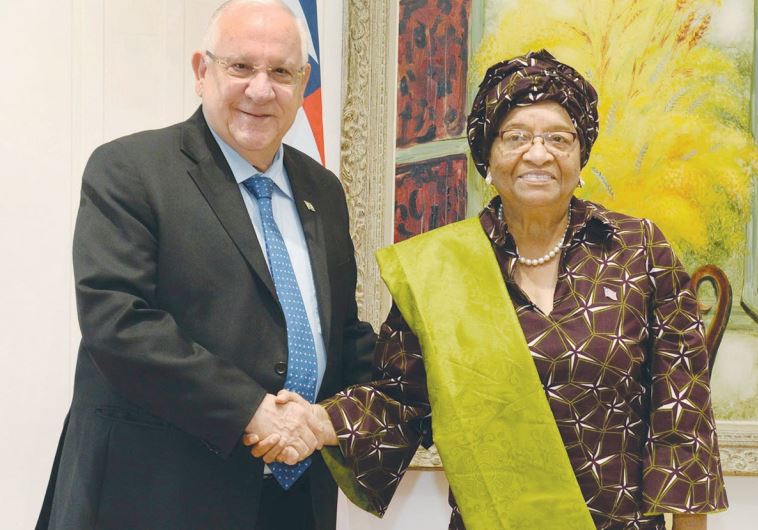Liberian president to Rivlin: Fundamentalism threatens peace
Johnson-Sirleaf, who is the first female head of state in Africa, then turned her attention to the fundamentalism now plaguing the world.
 PRESIDENT REUVEN RIVLIN yesterday welcomes Liberian President Ellen Johnson-Sirleaf to his official residence.
PRESIDENT REUVEN RIVLIN yesterday welcomes Liberian President Ellen Johnson-Sirleaf to his official residence.